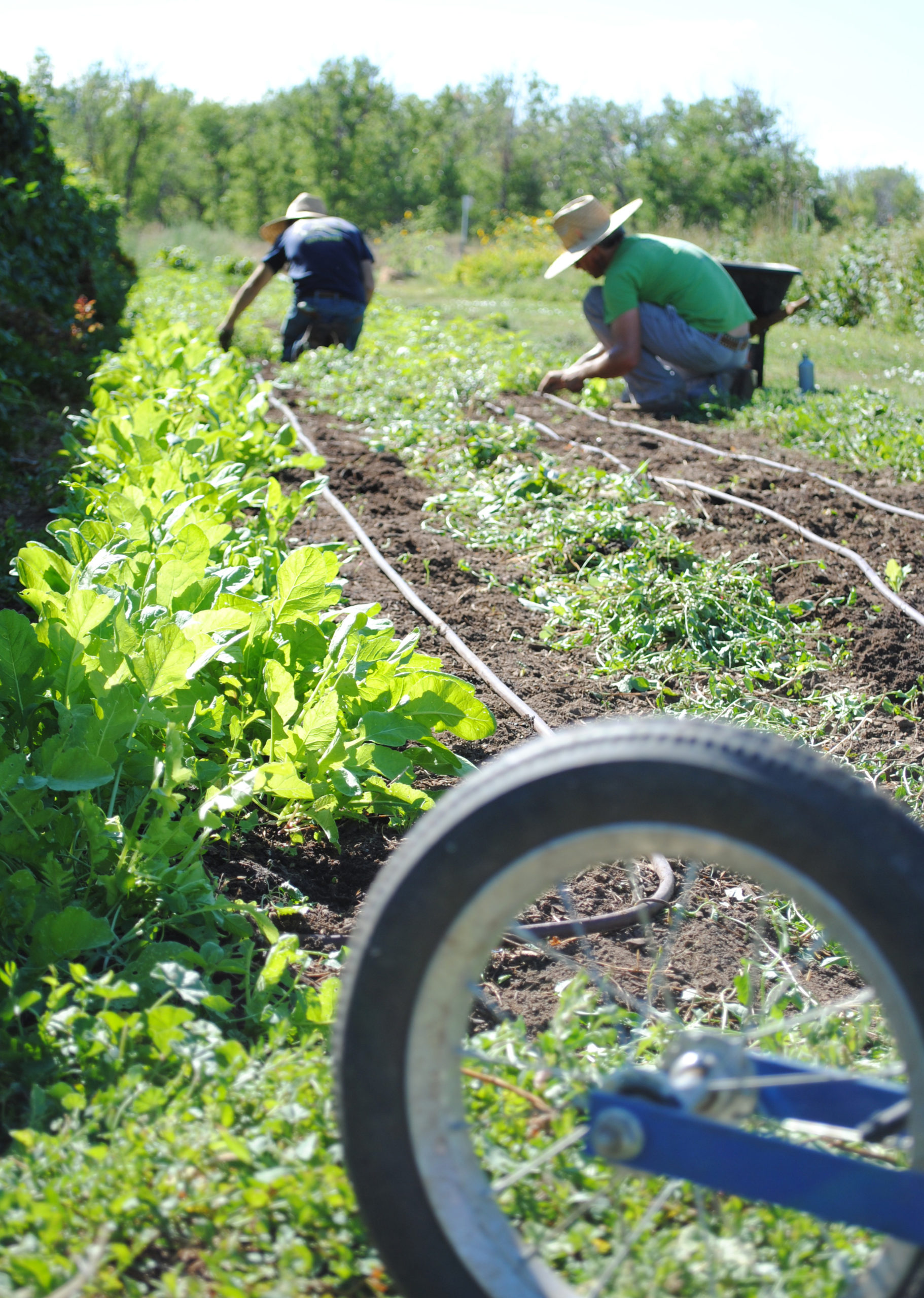DeLaney cultivates approximately 3 acres of mixed vegetables, herbs and flowers.
DeLaney grows a variety of vegetables that are appropriate for our dry, windy climate. We grow nearly 30 different types of vegetables (and over 100 different varieties). We grow vegetables that do well in our unique bioregion at DeLaney Community Farm: arugula, asian green, bush beans, beets, cabbage, carrots, corn, cucumbers, eggplant, kale, lettuce, onions, hot peppers, sweet peppers, potatoes, radish, rutabaga, summer squash, winter squash, swiss chard, tomatoes, turnips, and herbs.
DeLaney integrates sustainable practices into our farm operations including organic growing practices and agroecology principles (also known as ecological agriculture). We utilize and experiment with research- and scientific-based methods to increase yields, while also protecting the environment and increasing biodiversity.
DeLaney focuses on integrated pest management, water conservation, experiments in soil conservation, cover crops, crop diversity, nutrient management, intercropping, companion planting and more. At DeLaney, it is essential that we strive to be excellent stewards and work to create a healthy ecosystem.
Equally as important, we strive to model strategic farm planning, organizational management, mentoring, and detailed scheduling that results in a manageable farm-life balance for our Community Farmer Trainees.
Apiary
The apiary at DeLaney includes beehives in two areas of the farm, and serves to improve pollination and harvest yields from many of the flowering vegetables and fruits grown at the farm. The apiary also serves as part of the educational mission of DeLaney. As part of your visit, you may be invited to peek into the observation windows of the hives closest to the barn, and see the bees hard at work. Always remember to not stand directly in front of the hive entrances, as this can disturb the bees!




